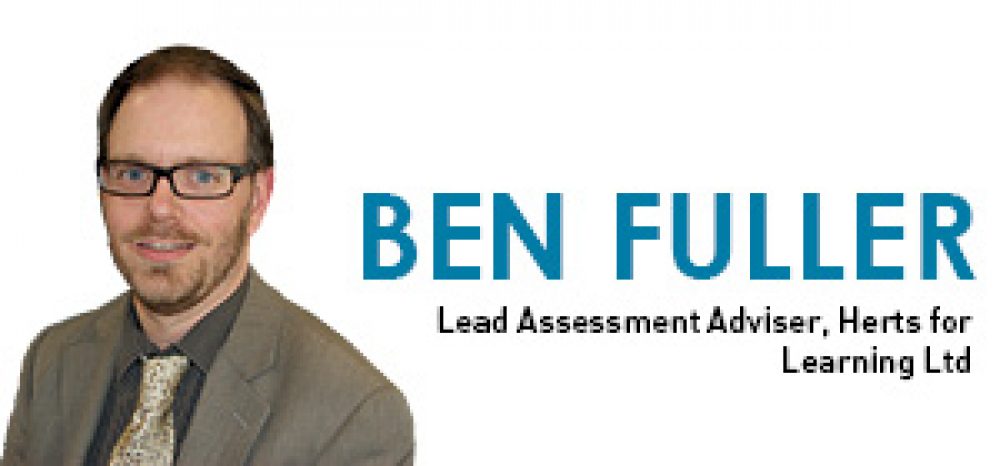When Ben Fuller wrote this article for Schools Week raising concerns over new requirements for exclamation sentences, it prompted a flurry of national media headlines. They included “Cripes! No exclamation allowed!” in the Sunday Times, and “Nonsense! Backlash over new school rules on exclamation marks” in The Telegraph.
Schools Minister Nick Gibb even wrote his own newspaper column to explain.
But Mr Fuller believes the coverage has somewhat skewed the real issues – and he’s written again for Schools Week to put the record straight.
When I wrote for Schools Week about the Department for Education (DfE) requirements regarding exclamation sentences, little did I expect it to capture the imagination of the national media in quite the way it did.
However, much of the media coverage included an important misconception, which I feel needs to be set straight.
It also tended to focus very specifically on the debate about exclamation marks rather than on the bigger picture of what has happened in assessment this year. I would like to address both of these issues.
Firstly, the “exclamation sentence” issue has been misrepresented as being about punctuation, whereas in fact it is an issue of sentence construction and categorisation.
Contrary to popular assertion, there is no mission to curb children’s use of the exclamation mark (at least none that I am aware of). An exclamation mark can (and should) still be used for exclamatory phrases such as “Wow! Amazing!” (for example in dialogue) or exclamatory statements (“It was a disaster!”).
The issue at stake, which is restated in the recent clarification document from STA is that the Key Stage 1 (KS1) “Expected standard” requires children to write exclamation sentences, which have been defined in a very specific (and I would argue, archaic) fashion. Claims that this is about raising standards in literacy seem extraordinary. Nobody speaks or writes in this way anymore, least of all seven-year-old children.
This is very much a KS1 issue – the writing criteria at Key Stage 2 (KS2) do not refer to the use of exclamation sentences. KS2 teachers have a different set of issues to contend with, such as the semi-colon and the hyphen.
The second point I wish to explore, which was largely overlooked in mainstream coverage, is that one of the key objections to what has happened this year is the lateness with which we have received crucial information regarding statutory assessment processes.
Important details have been drip-fed online throughout the year, often appearing without any great fanfare so you have to just stumble upon them. Key assessment messages have changed, exemplification materials have appeared far later than promised (or not at all, in the case of KS1 1 reading) and “clarification” statements and videos have, if anything, created contradictions and confusion.
For example, the DfE have sought to reassure teachers that they do not have to do any ticking of boxes on assessment grids for the benefit of external moderators. Technically this statement is correct. However, teachers do need to feel confident they can provide evidence to show the child can meet all of the criteria.
Teachers realise moderators will be ticking boxes to confirm they have seen the evidence. Many teachers would, I suspect, therefore prefer to use the ticksheets themselves so they can feel confident in their judgments before the moderator visits.
In any case, I would argue that ticking boxes is not the time consuming activity. Making sure you can find evidence for every assessment criterion is what will take the most time. Once you have found the evidence, ticking it off a list is surely the easy bit.
With just a few months to go, year 2 and year 6 teachers need to start thinking about their assessment evidence, establishing any key gaps and planning how and when they will teach the key skills required to fill those gaps.
Critics may say this is “teaching to the test” and pandering to a culture of jumping through hoops. This is a very worthy and admirable position to adopt but, in the current situation, I would take a more pragmatic stance and suggest that, for some vulnerable schools, such a strategic approach could make all the difference between a good set of results and being labelled as “failing”.
Ben Fuller is the Lead Assessment Adviser at Herts for Learning Ltd and is President of the Association for Achievement and Improvement through Assessment (AAIA).


Your thoughts